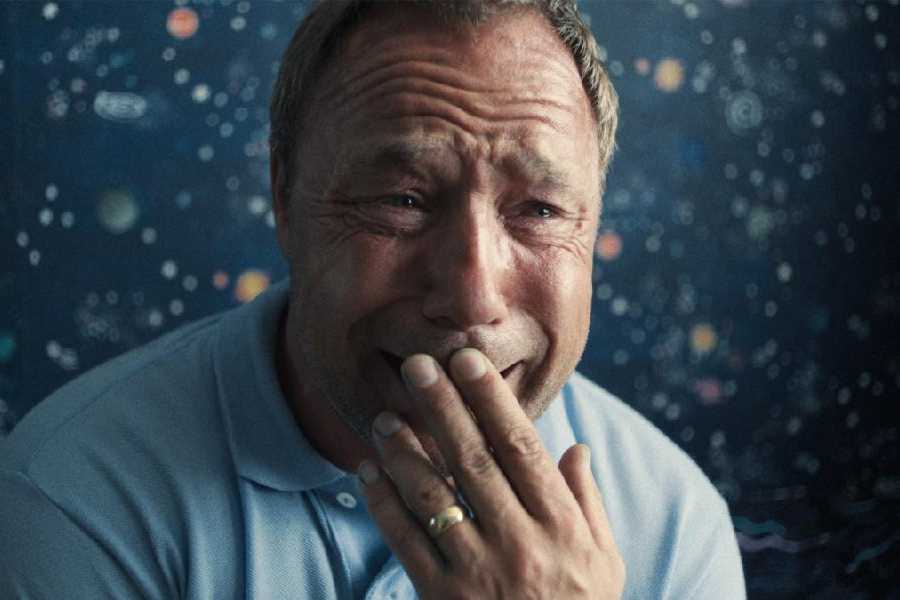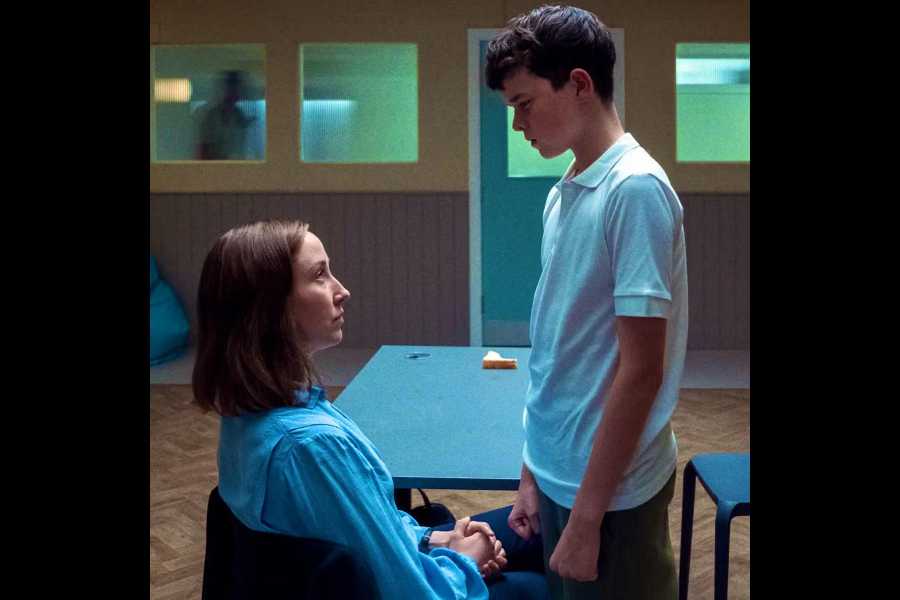Adolescence confronts the debilitating fear(s) of every parent — where are our children going? Who are they meeting? What kind of conversations are they having? Who or what is influencing them? And the biggest question of them all — what are our children watching?
Ever since it dropped exactly a week ago, this Netflix miniseries has taken the world by storm. ‘A perfect piece of television’ is not a descriptor that comes by easily, but Adolescence has earned that in more than a few reviews. On social media, it is being discussed, debated and dissected. Besides the overall impact of this four-episode series, almost every scene, dialogue, body language and more, is being put under the microscope, even as the viewer peels off layers and semi-layers of this crushing yet cathartic watch.

Stephen Graham
REALISM AS A RULE
Distinctly different from other crime dramas, Adolescence scores in being a rare title in its genre that doesn’t resort to manipulation, preferring to adopt an almost documentary style of storytelling. It tackles the crime at the centre of it as well as its aftermath as realistically as possible, aiming more to be a psychological examination of the anatomy of the murder and of its teenaged perpetrator, than a piece that relies on being sensationalist. In a world ravaged by noise — which has, by default, made its way to our screens as well — Adolescence is deathly quiet. So much so that when the tsunami at its core bursts forth, it threatens to sweep one away. In many instances, particularly in its last two episodes, it does. Given its immersive tone and texture, the audience is not merely a viewer in this case. You are a bystander, watching things unfold, both with horror and heartbreak.
Adolescence may be set in small-town England, but it is so much a story of the times we live in that it could be set anywhere in the world and have the same impact and relevance.
The Oxford Dictionary describes ‘adolescence’ as ‘the developmental stage between childhood and adulthood, marked by significant physical, psychological and social changes’. These words weigh more than they read or sound, with the loaded peripherals of the term evolving with every new generation. What we were as adolescents, our children definitely aren’t, exposed as they are to elements and experiences that the modern new world has thrust — I want to say gifted, but can’t — upon them.
GUT-WRENCHING YET RIVETING
Adolescence is a taut, thought-provoking and, at times, harrowing drama. It devastates you in a way that you didn’t think anything — let alone a TV series — could. Each episode is so masterfully written, mounted, directed, edited and performed that it can easily qualify as a standalone watch and have the same impact. It has a certain chokehold on its viewer, even when something seemingly innocuous is playing out. Everything about it is raw, brutal, gripping, gut-wrenching and yet riveting. I am sure that those who have already watched it will not accuse me of exaggeration. What sets Adolescence apart is that it gives the viewer space to process the information it throws at us while not stating the obvious. It is not a statement and neither does it offer a solution. It just is.
Directed by Philip Barantini, Adolescence kicks off on a regular early morning duty day for DI Luke Bascombe (Ashley Waters). A phone call, while in the company of his colleague DS Misha Frank (Faye Marsay), makes the duo, along with a battery of armed cops, knock down the front door of the unassuming Miller family in a quiet neighbourhood and arrest their 13-year-old son Jamie (Owen Cooper) on suspicion of murder. The family is understandably perplexed and devastated, certain that it is a case of mistaken identity. The rest of the episode unfolds in the form of a police procedural, with Jamie — who denies the allegations against him at every step — being made to go through the formalities. Even as the camera pans on every step of the official and unemotional process, it keeps moving back to his family wo are attempting to process what is happening to them. Jamie chooses his dad Eddie — co-creator Stephen Graham nails what is the toughest part in the series — to be his ‘accompanied adult’. What unfolds is a masterclass in storytelling and performance that one has seldom seen before.
The following episode, with Adolescence now more of a whydunit than a whodunit, takes place in the school in which both the victim and the accused study and is harrowing in more ways than one. We take a deep-dive into ‘Incel culture’, what the 80-20 rule in terms of dating in the Gen-Z world means (to put it simply, 80 per cent of women are interested in only 20 per cent of men, leading to a lopsided dynamic) and come face-to-face with a host of uncomfortable truths, including toxic masculinity, the sexualisation of young boys and girls, bullying, the ugliness of relationships in the modern world and the urgent, almost desperate, need to belong. It is not pretty, but Adolescence makes it compelling viewing.
In this episode, the communication exchanged between boys and young men about what they are entitled to expect and to take from girls and women, comes alive, a lot of which feels like a punch to an already inflamed gut. Andrew Tate’s name crops up in a conversation between adults as they try to get a grip on what they are learning. It is but natural that ‘manosphere’ will make its way into the mix soon enough.
CHILD AS A MAN
The third episode, which is being singled out for unanimous praise, takes place between Jamie and a woman named Briony, who has been sent in for his psychological assessment. Erin Doherty steps into this episode and runs with it, her visceral interaction with Jamie seeing him swinging wildly between boy and man, man and boy. It is 52 minutes of pure art and craft — and I do not use those terms loosely — that will have you holding your breath as the two pow-wow through an episode that wreaks subtle devastation on both, and on us.
Some may compare it to ‘The Hurt Man’ episode of last year’s Monsters: The Lyle and Erik Menendez Story, also on Netflix, that features a single-take, 36-minute scene where Erik Menendez details his alleged abuse to his defense attorney, Leslie Abramson. But the one in Adolescence leaves far more impact because unlike the inherent tone of Monsters, the rest of Adolescence doesn’t feel gimmicky. Plus, Owen Cooper — in what is remarkably his first acting gig — is a tour de force; his gradual implosion of anger and hate in this episode is something that even seasoned artistes will struggle to effectively depict on screen. A lot can be found on the Internet about the technical marvel that Adolescence is, with all four episodes shot in real time and in one continuous shot. That it is backed by solid work in all other departments is what makes it more potent.
Episode 4, which is my favourite because of its searing intensity despite its everyday look and feel, is heart-wrenching. It looks at the Millers 13 months after Jamie’s incarceration and takes place on Eddie’s 50th birthday. Jamie’s family, including his sister Lisa, are bravely weathering the storm — which includes some extremely insensitive townsfolk — and we witness their gradual unravelling in the course of just one day, oscillating between a host of emotions as they struggle to come to terms with their fate. ‘Could we have done better,’ is the question they constantly ask, between tears, about the quality of their upbringing. It is a scene, led by a superlative Graham, that every parent — and even if you are not — will watch with your heart pounding in your chest. For Jamie could be anyone’s child.
Adolescence is a must-watch because... Tell t2@abp.in

